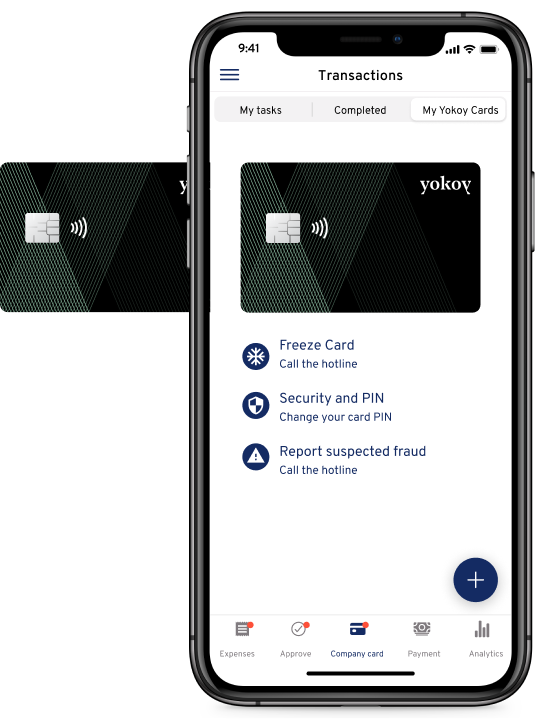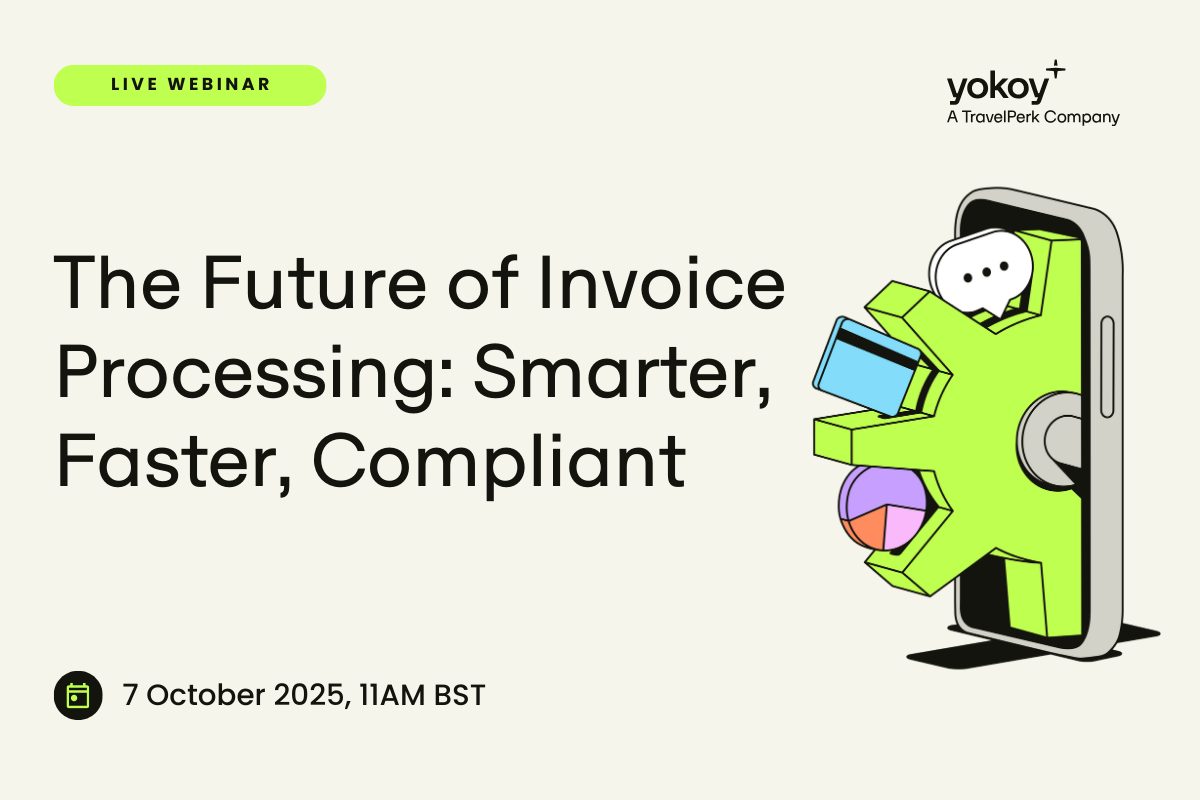Home / The Future of Digital Wallets in Europe
The Future of Digital Wallets in Europe
- Last updated:
- Blog

Remember that paying for something meant digging through your wallet for the right card? Or maybe even worse: searching for change in the form of dozens of coins? Those days are quickly becoming a relic of the past. Across Europe, the digital wallet has gone from niche tech to an everyday essential, transforming how consumers pay and businesses manage finances.
From contactless NFC mobile payments at corner cafés to virtual corporate cards that streamline global expense management, finance is getting a serious upgrade. Platforms like Apple Pay, Google Pay, and PayPal are leading the charge, while a new wave of fintech innovators is redefining what’s possible with digital payments. This is also about security, compliance, and agility in an increasingly fast-paced financial world.
This isn’t just a consumer trend. For companies operating across the EU, the rise of the digital wallet signals a deeper transformation that redefines payment methods, expense management, and even regulatory compliance.
Why businesses need to adopt digital wallets
Increased security: With added biometric authentication (e.g., fingerprint or facial recognition) and tokenisation, digital wallets significantly reduce the risk of credit card fraud and unauthorised access. Unlike physical cards, virtual wallets don’t store sensitive bank account details directly, offering an added layer of data privacy and protection.
Seamless cross-border payments: Operating across European Union member states often means dealing with multiple currencies, inconsistent systems, and slow settlement times. Digital wallets enable real-time multi-currency mobile payments, reducing friction in cross-border transactions. This functionality is particularly useful for companies managing international payment methods and business travel.
Compliance with EU payment regulations: The European Commission and national regulators are tightening standards around transparency, traceability, and personal data handling in digital finance. With the upcoming expansion of electronic identification, authentication and trust services (eIDAS) and the European Digital Identity Wallet (EUDI) development, businesses must align with more stringent open banking and identity verification protocols.
Controlled spending: Using virtual corporate cards linked to digital wallets allows finance teams to set granular controls on spending—by department, project, or individual user. This reduces the risk of overspending and improves budget adherence. Emerging fintech providers increasingly offer smart payment options allowing real-time tracking, automated categorisation, and integration with broader financial services tools.
Faster employee reimbursements: Traditional reimbursement processes are slow and paperwork-heavy. With mobile wallet integration, businesses can instantly reduce wait times by providing funding instantly. This agility also applies to vendor payments that ensure smooth operations, especially for remote and hybrid teams.
Reducing administrative overhead: Digital wallets can include automated expense tracking and digital receipts, eliminating manual entry and paper-based workflows. Many modern e-wallet platforms integrate with expense management tools to streamline approval workflows and enhance user experience.
Eliminating cash: Cash management is costly, insecure, and difficult to reconcile, particularly in today’s digital transformation era. By moving to contactless payment methods, companies can reduce dependency on physical multi-currency, standardise transactions, and promote sustainability. Smartphones and wearables now act as point-of-sale devices, allowing teams to accept and issue digital payments wherever business happens.
Blog article
How Virtual Corporate Cards Boost Expense Control and Limit Discretionary Spending
What challenges virtual corporate cards solve, what are their benefits, and why are virtual cards the perfect solution for limiting discretionary spending?

Lars Mangelsdorf,
Co-founder and CCO
Key regulatory changes impacting digital wallets in Europe
As digital wallet adoption becomes mainstream, businesses must navigate evolving regulations. From Strong Customer Authentication (SCA) mandates to new fintech and digital wallet provider standards, regulatory frameworks are evolving to balance innovation with data protection, transparency, and financial security.
PSD2 and Strong Customer Authentication (SCA) for secure transactions
The Revised Payment Services Directive (PSD2) has had a transformative impact on digital payments in the European Union, especially regarding security. One of its key provisions, called Strong Customer Authentication (SCA), requires multi-factor authentication for most electronic transactions. This enhances transaction security for businesses across payment service providers. At the same time, it demands seamless integration with existing systems to maintain a smooth user experience. Adopting digital wallets that are PSD2-compliant helps companies meet these standards without sacrificing functionality or customer convenience.
New anti-money laundering (AML) and KYC requirements
The EU’s renewed focus on Anti-Money Laundering (AML) and Know Your Customer (KYC) regulations is reshaping the onboarding process for individuals and businesses. Providers must implement robust identity verification and transaction monitoring protocols as digital wallets become embedded in the broader financial services ecosystem.
For businesses, this means selecting wallet providers that can support automated KYC processes and real-time transaction tracking. These requirements are particularly critical for companies involved in cross-border payments.
EU regulations on digital wallet providers and fintech expansion
The European Commission has clarified that FinTech and digital wallet providers must operate within a well-regulated, competitive, and secure environment. This unified legal structure ensures interoperability, protects personal data, and enhances consumer trust. As a result, businesses must partner with providers who meet these legal requirements and align with evolving standards around data privacy, user experience, and technological advancements.
Additionally, the increased push for open banking means that digital wallets must integrate seamlessly with other financial platforms, enabling real-time data sharing and improved financial transparency for businesses and regulators.
Challenges and considerations for CFOs
As digital wallet adoption accelerates across Europe, CFOs must carefully consider a range of strategic and operational challenges. Ensuring full compliance with European Union digital payment laws—such as PSD2, Strong Customer Authentication (SCA), GDPR, and the forthcoming European Digital Identity Wallet (EUDI)—is essential for avoiding regulatory penalties and maintaining trust. This includes strict data protection and authentication standards, particularly when handling personal data and financial services across member states. At the same time, integrating digital wallets with existing financial infrastructure can be complex.
Many organisations rely on legacy ERP systems, finance tools and siloed datasets, and introducing new payment methods requires seamless interoperability to avoid data fragmentation and inefficiencies. Choosing a platform with robust API connectivity and real-time syncing with bank accounts, accounting systems, and approval workflows is key.
Security is another top priority: while digital wallets often include advanced biometric authentication and tokenisation, CFOs must still address potential vulnerabilities such as unauthorised access, phishing, or fraudulent transactions, especially in decentralised or remote teams using virtual credit cards or mobile payment options. Implementing strong internal policies, role-based access, and continuous monitoring are critical steps toward mitigating risk. For finance leaders, digital wallets enable a secure, future-ready digital transformation within the broader financial ecosystem.
Yokoy Smart Corporate Cards
Pay the smart way
Simplify your card administration and gain real-time visibility and control over your global spend with Yokoy’s Smart Corporate Cards.

The role of AI in the future of digital wallets and how Yokoy can support businesses
Digital wallets are no longer limited to consumer convenience. They are emerging as intelligent, enterprise-grade payment solutions. And AI is at the heart of this transformation.
With platforms like Yokoy, you can harness AI to streamline your finance operations, reduce risk, and unlock new levels of automation in your corporate payment workflows.
AI-powered fraud detection
Yokoy leverages AI-driven risk models to detect threats proactively and improve financial data protection. AI plays a critical role in identifying fraudulent activity within corporate digital payments. By analysing thousands of transactions in real time, AI systems can flag suspicious behaviour based on spending patterns, device usage, or geolocation anomalies. This is particularly valuable for your business when using virtual credit cards, VISA or mobile wallets or managing cross-border payments across member states.
Real-time transaction monitoring
Traditional finance teams often struggle with delayed visibility into spending. AI enables real-time transaction value monitoring, capturing purchases the moment they happen, whether made via Apple Pay, Google Pay, or a corporate e-wallet. This allows you to make faster decisions, manage cash flow more effectively, and ensure full department transparency. Such visibility is crucial for regulatory compliance and financial control if your company operates in a multi-entity environment.
Predictive analytics
By learning from past spending behaviours, AI can forecast budget trends, flag potential overspending, and optimise resource allocation across your teams or markets. With digital wallets integrated into finance systems, this level of intelligence allows you to move from reactive cost control to proactive financial strategy. This empowers you to make better decisions in today’s volatile economic landscape.
Automated policy enforcement
Managing payment policies manually is time-consuming and prone to error. AI automates policy enforcement by applying pre-set company rules to every digital wallet transaction. Out-of-policy spending can be blocked instantly, prompting users for justification. This helps ensure compliance with internal controls and supports adherence to EU regulatory requirements. Yokoy’s AI ensures your corporate spending always aligns with company policy with minimal administrative effort.
Seamless integration
Yokoy ensures the seamless integration of digital wallets into existing financial systems by connecting effortlessly with leading ERP platforms, bank accounts, and accounting tools. Built for interoperability, Yokoy supports smooth data flow across departments and member states, enabling real-time visibility into digital payments and expense activity. All transactions are automatically captured, categorised, and matched to company policies. This supports regulatory compliance across the European Union, empowering your finance team to drive smarter decisions and accelerate digital transformation.
Next steps
Discover how Yokoy and AI-powered digital wallets can streamline spending, enhance security, and ensure European compliance.
Book a demo today and see how your business can benefit from seamless automation and smarter payment solutions.
In this article
See intelligent spend management in action
Book a demoRelated content
If you enjoyed this article, you might find the resources below useful.


